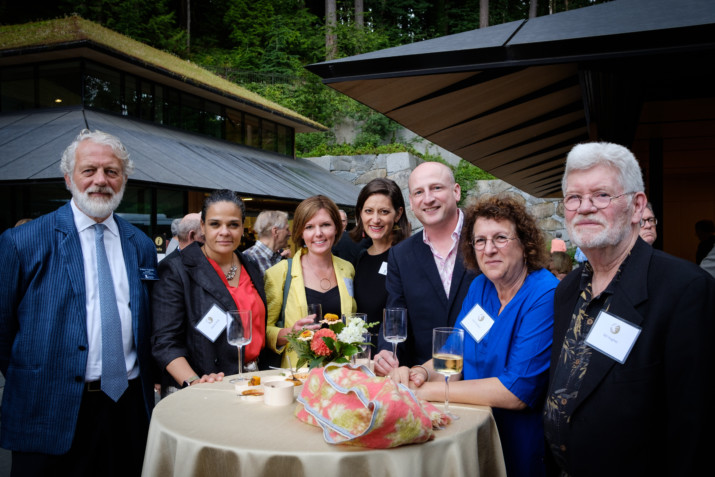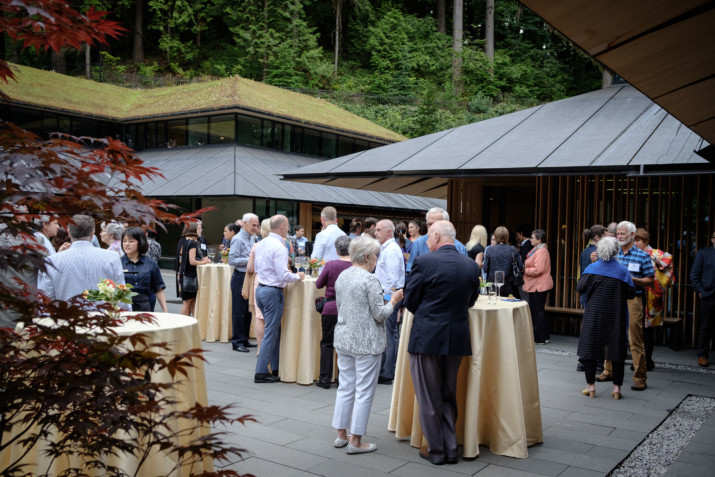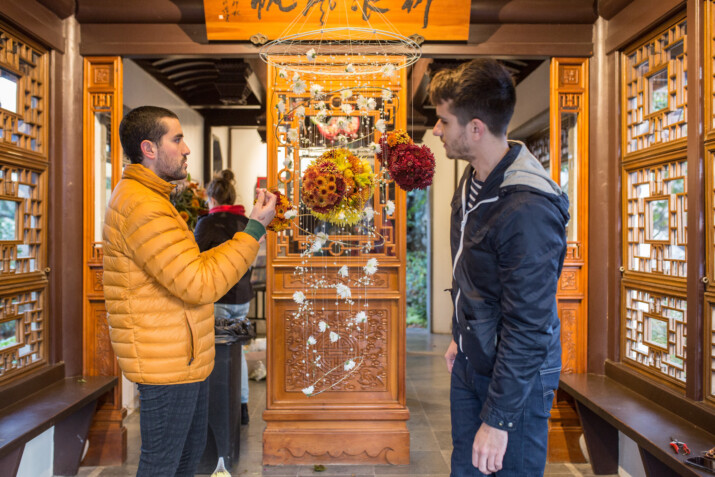Portland, OR. Portland Japanese Garden hosted its Annual Golden Crane Reception, outside in the Garden’s new Cultural Village on July 10th. The reception for top donors took place in the Atsuhiko & Ina Goodwin Tateuchi Foundation Courtyard. Robert Zagunis, Adena Long, Heather McCarey, Lisa Christy, Steve Bloom, Dorie Vollum and Bill Hughes enjoy the evening at the Garden. (Photo credit, Peter Friedman)

Adena Long, new Director of Portland Parks & Recreation chats with Portland Japanese Garden CEO Steve Bloom
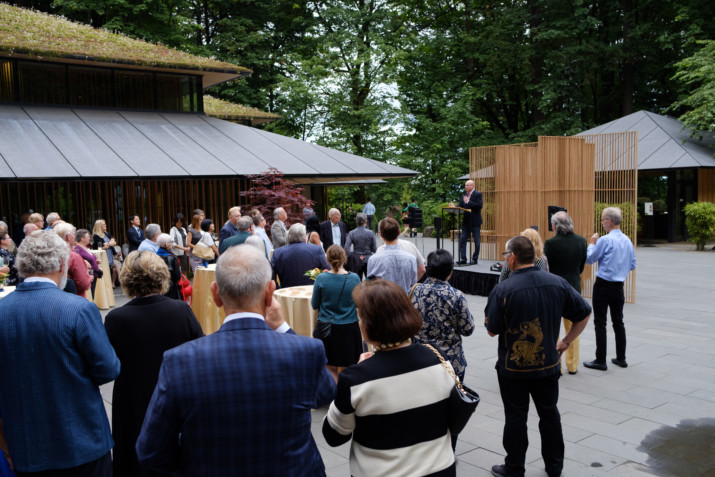
Portland Japanese Garden CEP Steve Bloom addresses guests at the Garden’s Annual Golden Crane Reception
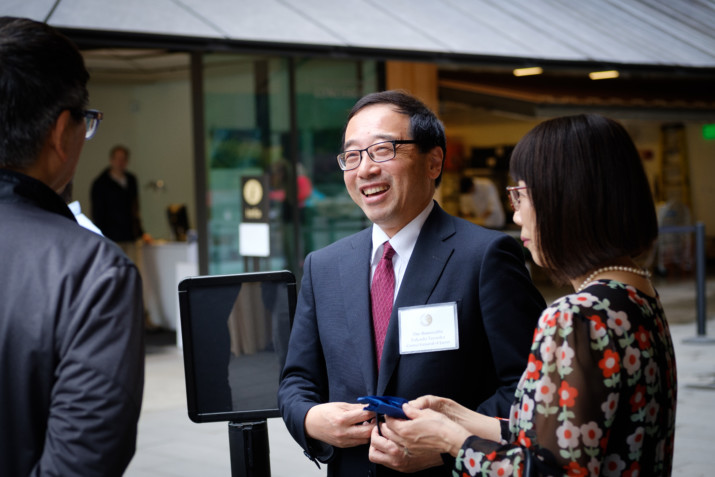
Mr. Takashi Teraoka, Consul General of Japan in Portland and his wife, Mrs. Junko Teraoka attended the Annual Golden Crane Reception
Aki Nakanishi, the Arlene Schnitzer Curator of Culture, Art & Education at the Garden made remarks about future programming and Portland Japanese Garden CEO, Steve Bloom thanked Golden Crane Society Members and Legacy Society Members for their support, passion, and dedication to the Garden. After heavy rain just a few hours prior to the event, the sky cleared and made for a beautiful evening.
From Portland Japanese Garden:

When His Excellency Nobuo Matsunaga, the former Ambassador of Japan to the United States, visited Portland Japanese Garden, he proclaimed it to be “the most beautiful and authentic Japanese garden in the world outside of Japan.”
The Garden sits nestled in the hills of Portland, Oregon’s iconic Washington Park, overlooking the city and providing a tranquil, urban oasis for locals and travelers alike. Designed in 1963, it encompasses 12 acres with eight separate garden styles, and includes an authentic Japanese Tea House, meandering streams, intimate walkways, and a spectacular view of Mt. Hood. This is a place to discard worldly thoughts and concerns and see oneself as a small but integral part of the universe.
Born out of a hope that the experience of peace can contribute to a long lasting peace. Born out of a belief in the power of cultural exchange. Born out of a belief in the excellence of craft, evidence in the Garden itself and the activities that come from it. Born out of a realization that all of these things are made more real and possible if we honor our connection to nature.
Our mission is to bring the ideals of the Portland Japanese Garden to the world: art of craft, connection to nature, experience of peace.
OUR CORE VALUES
- Inspiration, serenity, tranquility, and the aestheticism of nature.
- Excellence in the management and maintenance of the Garden.
- The expression of Japanese culture, tradition, and aesthetics.
- Cultural authenticity directed to the needs of diverse local, national, and international communities.
- Environmental awareness and conservation, and the pursuit of environmental sustainability in the operation of the Garden and its activities.
- Mutual respect and harmony with all connected communities.


